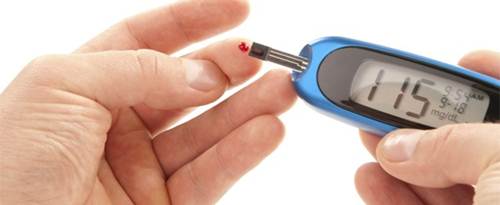
Whether you are working to manage heart disease or have experienced a heart attack, you’re understandably concerned about your health. The good news is that by adopting a healthy lifestyle — including a balanced diet and regular exercise for better weight management — and by working with your doctor, you can control high cholesterol, blood pressure, and blood sugar to improve your heart health.
Stop Smoking for a Boost to Heart Health

We all know cigarette smoking is bad for our lungs, and it’s also at the top of the list of heart disease risks. Among other harmful effects, smoking raises blood pressure and increases the likelihood of blood clotting. It also decreases HDL (good) cholesterol and makes exercising more difficult. Fortunately it’s never too late to stop smoking and help limit the progression of heart disease.
Control High Blood Pressure and Cholesterol
Keeping high blood pressure and high cholesterol in check are two more ways to help control heart disease. Approximately one in three adults in the United States has high blood pressure, which can damage the heart, blood vessels, and kidneys. High cholesterol is another serious heart disease risk factor, and the higher your cholesterol number, the greater the danger. Follow your doctor’s orders to get both under control through diet, exercise, and medication, if prescribed.
Weight Management Is a Must
Weight management is an important step in limiting heart disease. To determine if you’re overweight, calculate your body mass index. If you need to lose weight, work on eating fewer calories than you burn and avoiding foods high in calories and low in nutrition, such as soda and sweets. Ask your doctor about consulting a dietitian for help if you need it.
Get Regular Cardiovascular Exercise
“Do not use the excuse ‘I have heart disease’ to limit physical activity,” says Sohah N. Iqbal, MD, a general and interventional cardiologist at New York University Langone Medical Center in New York City. “Even after a heart attack patients should get back on an exercise program guided by their doctor.” Dr. Iqbal recommends those with heart disease walk as much as they can at first and then increase that amount over time. Walking will also help with weight management.
Manage Diabetes to Lower Heart Risks

Diabetes is another crucial heart disease risk factor. In fact, people who have diabetes are twice as likely to have a heart attack or stroke. And those with diabetes who do have a heart attack often have a more serious incident. Keeping your blood sugar levels under control can help keep your heart and arteries healthy. If you have diabetes, consider consulting with a certified diabetes educator for help designing a balanced diet and exercise program.
| Eating whey protein before breakfast could prevent diabetes|
Eat a Heart-Healthy Diet

When you’re living with heart disease and striving to manage your weight, a balanced diet is a key. Focus on foods high in fiber —such as fruits, vegetables, and whole grains — omega-3 oils (such as coldwater fish, especially salmon), and mono- and polyunsaturated fats. Also, limit saturated fat, which can clog arteries from high cholesterol, and avoid trans fats, often found in fried foods, processed foods, and commercial baked goods.
Cut Back on the Salt

The American Heart Association recently reduced the amount of salt recommended for everyone to just 1,500 mg a day, which is about two-thirds of a teaspoon. This is down from the previous recommendation of 2,300 mg of salt per day. Salt contributes to heart disease risks, such as high blood pressure. Talk to your doctor about your personal limit for managing heart disease. As you’re cutting back, keep in mind that much of the salt in our diet actually comes from pre-packaged items rather than the salt shaker. Culprits include canned soups, frozen dinners, and cured meats — always check the nutritional chart on food packages for the sodium content.
Control Stress for a Calmer Heart

“I believe the most overlooked element in preventing heart disease and heart attacks is stress,” says John M. Kennedy, MD, director of preventive cardiology at Marina Del Rey Hospital in Marina Del Rey, Calif. and author of The 15 Minute Heart Cure. “The simple fact of the matter is we need to get stress under control to stay healthy and productive.” Whether you try meditation, yoga, guided imagery, or another mind-body approach, relaxation techniques can be an important tool in keeping heart disease under control.
Get Educated About Heart Disease

Knowledge is power, and there are many ways you can learn more about heart disease and protect your heart from further damage. Your doctor is a good source of information, but take advantage of other resources as well. Check out the American Heart Association for information about diet to exercise advice to local chapters. The National Heart, Lung, and Blood Institute, part of the National Institutes of Health is another great resource, as is the Everyday Health Heart Health center.
Source :- Everyday Health

Leave a Reply